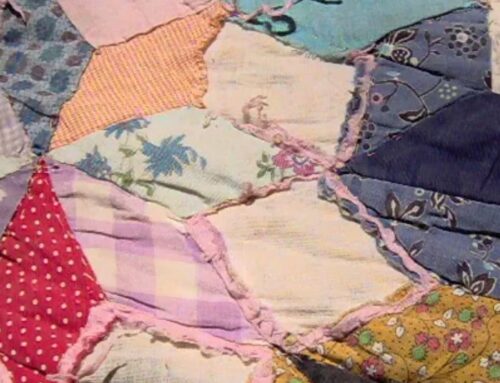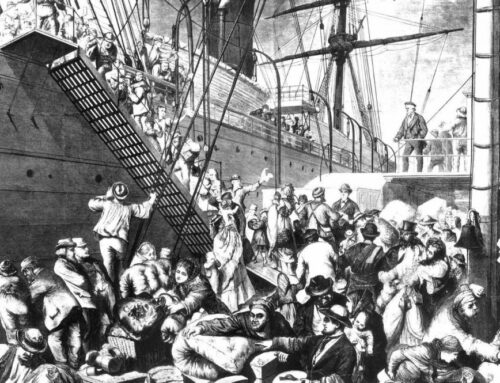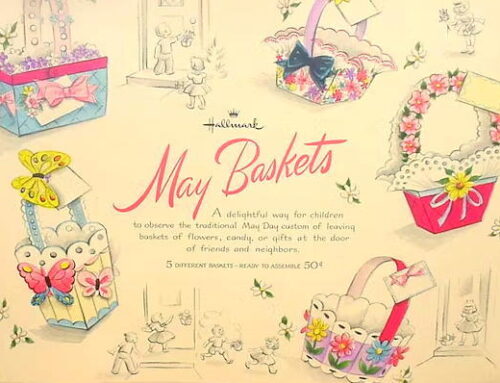How many times have we been asked why we do genealogy? One of my answers is about the emotional connection we feel when we learn more about our ancestors’ lives.
Immigrant Ancestors
Quite often I post about the Tenement Museum, one of the best historical museums anywhere. It’s one of the very few devoted to documenting the lives of the working poor.
All of my eight great-grandparents emigrated from Europe to Chicago.
Though none settled in Manhattan, everything about how this museum interprets the real, immediate past of European immigrants resonates with me. It also made me think in almost overwhelmingly emotional terms of the battles my ancestors faced.
Why Does This Matter?
A Tenement Museum staff member saw my posts. She asked if I would write about why it mattered to me. I tried. But I was stuck. It reminded me of interrogations from library beancounters about why archives mattered. “Why?” It seemed so fundamental to preserve records of the past.
At first, I had no good answers justifying why this was important – not just to me, but to every thinking person.
But now as I continue to research, finding the origins of my ancestors has only grown in importance. Birthplaces, dates, parents, siblings, occupations of those great-grandparents are fundamental. And as I age, this has only increased. My ancestors were the authors of their own fate. They and their labors were the reason why America became a first-world power, for better or ill. They were the reason I enjoyed a privileged life in America. They were braver than I could ever be.
History Matters…and Genealogy is History
I found this article by professional historian Alexandra M. Lord, entitled History Matters, at the website for the American Historical Association:
I have spent hours watching my older sister, an attorney and a summa cum laude history major from Yale, research our family’s genealogy. Over the last five years, she has traced not only our family’s journeys from Britain, the Netherlands, and northern Greece to America—but also the journeys my husband’s and her husband’s families made from the shtetls of eastern Europe to America.
Her ability to navigate name changes, to find relatives as they appear and disappear in the written record, to untangle family myths from historical truths, and her desire to understand the context in which our families and those of our in-laws made their journeys is multifaceted. [emphasis mine] …Restructuring the AHA annual meeting so that the discussion is about the diverse ways in which people (in the United States and elsewhere) use, understand, and value history would be an excellent first step.
Genealogists, Archivists, and Historians
Dr. Lord wrote this in 2011. Since then, I believe the reasons for “doing” genealogy have gained new respect. Last October, I gave the keynote address for Family History Day at the Utah State Archives, entitled “Beyond Peaceful Coexistence: Archivists and Genealogists Working Together.” Genealogists are now skilled and discerning researchers. Archivists and librarians increasingly understand that genealogists are valuable users of their services and collections. Together they make a whole.
Why We Do Genealogy

Paris Police Prefecture Archives Open Records of Vichy Regime. (Courtesy AP Photo/Francois Mori)
Those bound volumes at left?
They are among the hundreds of thousands of files documenting the French Resistance in World War II. The Paris Police Prefecture Archives opened these records to research in December 2015. Communists and Jews and French citizens of all kinds believed that resisting the Nazis was worth their lives. Here are the records of that fundamental belief.
This is why archivists preserve records.
That’s why academic historians interpret the past.
And why we do genealogy? To articulate the burdens and successes of our ancestors. This is why we do genealogy.






Well said, Nancy. I’ll be sharing this with my family who, while the appreciate my efforts, have little idea of how all consuming the research can be.
Perfectly said!
Great point that was mentioned at our society meeting only last Thursday.